The 25 Best MBA in Healthcare Management Programs

Build your talent stack while earning an MBA in Healthcare Management at the same time. There is a strong need for experienced business leaders across all areas of the healthcare industry. An MBA program in healthcare management can help you build out both your business management stack and your healthcare management stack, and the merging of the two together in a program can be a powerful tool for your career.
Develop Your MBA Stack in Healthcare Management
With an MBA in Healthcare Management, you’ll lay a strong business foundation and develop your skills and understanding of the healthcare field through electives or specializations, as well as residencies and case competitions, depending on your program of choice.
In this ranking, we’ll lay out the top 25 MBA in Healthcare Management programs. Schools in this ranking are spread across the county and offer programs from traditional full-time, on-campus MBA programs to online and hybrid options with a more part-time or flexible schedule to help students fit school into their lives.
Methodology
To highlight the top MBA in Healthcare Management programs, data was collected on the top U.S. colleges and universities from leading ranking sources: Forbes, the Wall Street Journal, Quacquarelli Symonds, and U.S. News and World Report. Scores were configured to a 100-point scale and averaged to find each MBA program’s Stacked Score. Every single MBA in Healthcare Management in this list hails from a top business school and holds a prestigious MBA brand.
Best MBA in Healthcare Management Programs
Yale University – New Haven, Connecticut

The Yale School of Management offers a two-year MBA program. This is a traditional, on-campus program. Year One is focused on core courses, while students get to delve into their electives in Year Two. Healthcare is one of the elective areas of the second year. Students may also choose to earn a dual MBA/MPH degree or MBA/MD degree.
The Executive MBA program is also an option for Yale MBA students. Like the Full-Time MBA, the EMBA program is a two-year program. However, instead of a traditional class schedule, the EMBA gives students the flexibility of a weekend format, and students have the opportunity to deepen their understanding of one of three offered focus areas during their second year, one of which is healthcare. This focus area makes up 25 percent of the EMBA program.
Stacked Score: 98.09
University of California, Berkeley – Berkeley, California

The University of California, Berkeley’s Haas School of Business gives students the opportunity to pursue either the Full-Time MBA program or the Executive MBA program. The Full-Time MBA is made up of 14 required courses alongside electives to hone in on building a healthcare stack. Additionally, there is a required Applied Innovation course that uses experiential learning in a team project format. Students also have the opportunity to pursue a dual MBA/MPH degree.
Meanwhile, the EMBA program at UC Berkeley is a five-term program. Classes usually meet once a month over a long weekend (Thursday through Saturday) and over five Field Immersons that are five to seven days long. These Field Immersions make up 25 percent of the program around California, in Washington DC, and the last is an international trip. The EMBA offers a Leadership in Healthcare track for physicians looking to develop and expand their leadership and business acumen.
Stacked Score: 95.94
University of California, Los Angeles – Los Angeles, California

The Full-Time MBA at the Anderson School of Management at the University of California, Los Angeles, is a two-year program. With a front-loaded curriculum, the first year is made up of nine core courses (and some electives), while the second year focuses on the remaining electives, specializations, and the capstone project. Students have the opportunity to complete one or two specializations, among which Healthcare Management is an offering.
The Anderson School also offers a 22-month Executive MBA program with flexible Friday and Saturday classes, one week abroad, and blended and hybrid class formats. In addition to a variety of healthcare management electives to choose from, EMBA students may also opt to earn a healthcare management specialization.
There are also dual MBA/MD and MBA/MPH degree program options for students looking to build a robust healthcare stack. There is also a year-long Biodesign Fellowship for MBA healthcare students where students develop innovative ventures derived from clinical needs.
Stacked Score: 95.89
Duke University – Durham, North Carolina
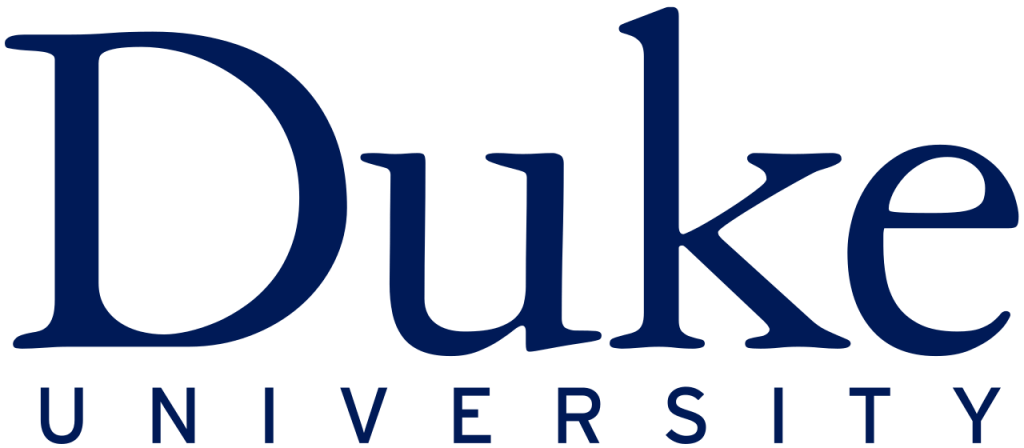
At Duke University’s Fuqua School of Business, there are four MBA programs for students to select from. For those looking for a full-time, in-person learning environment, there is the 10-month Accelerated Daytime MBA and the 22-month Daytime MBA. But Fuqua also offers the 21-month Global Executive and the 22-month Weekend Executive programs for working professionals who need a hybrid format.
All four programs offer an array of concentrations and certificates for students to choose from, including a Certificate in Health Sector Management (HSM). This certificate takes an interdisciplinary approach to the health sector and also provides students with opportunities for extracurricular and co-curricular programming and events to augment certificate coursework. Some of these include a weeklong HSM boot camp, the HSM speaker series, the HSM Fellowship, the Health Provider Association, and the Duke chapter of the Institute for Healthcare Improvement.
Stacked Score: 95.55
Johns Hopkins University – Baltimore, Maryland
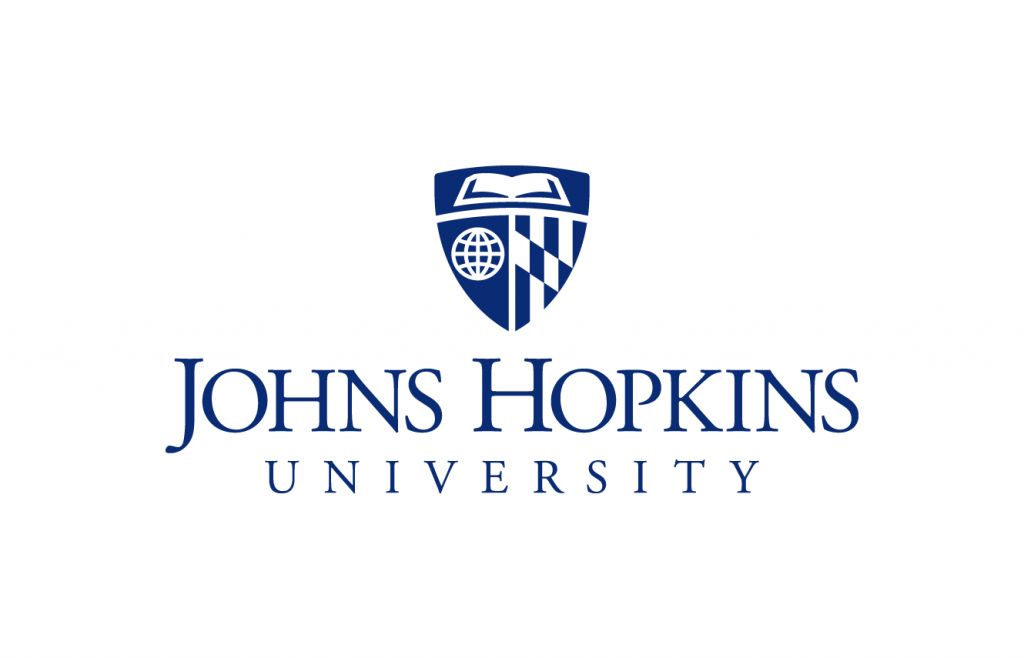
Johns Hopkins University’s Carey Business School provides several options for students to pursue their MBA degrees with both on-campus and hybrid programs. There is a traditional two-year on-campus Full-Time MBA program, as well as a Flexible MBA for those working professional students who need the option of online or on-campus classes or a hybrid. This is a part-time master’s program that allows students to earn their degrees in just under three years.
The Flexible MBA has eight areas of specialization for students to choose from, and among these are Healthcare Management, Innovation, and Technology. This specialization has three required courses – Frameworks for Analyzing Health Care Markets, Health Innovation and Evaluation, and Emerging Frontiers in Health Technologies and Strategies – from which students must choose two courses. The rest of the specialization is made up of healthcare-related electives. Meanwhile, the Full-Time MBA offers two pathways, with Health, Technology, and Innovation being one.
Stacked Score: 94.09
University of Michigan, Ann Arbor – Ann Arbor, Michigan
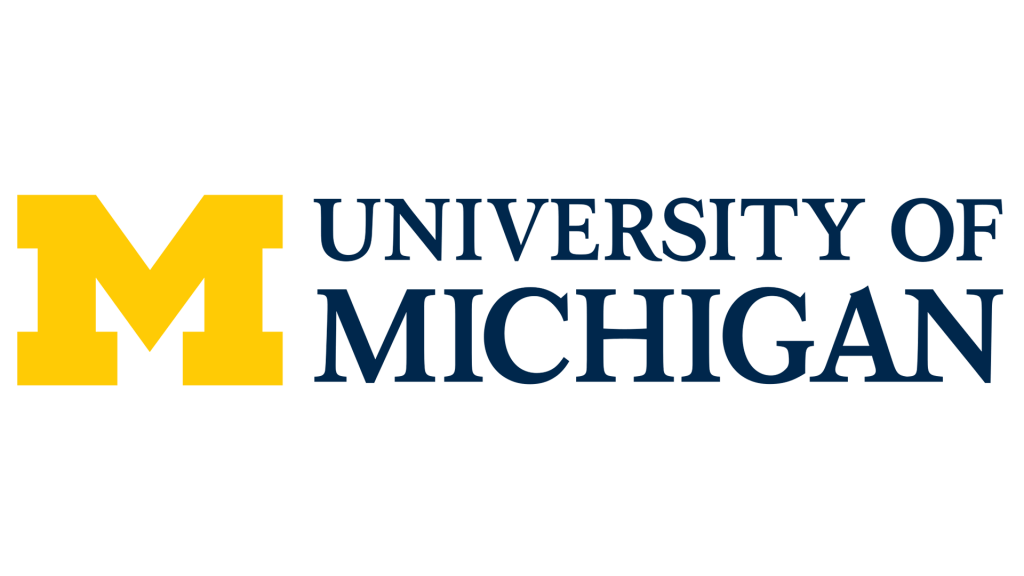
In Ann Arbor, the University of Michigan’s Ross School of Business has a selection of five MBA programs. Students may choose to enroll in the two-year Full-Time MBA program, which holds classes on campus. But Ross also offers options for those who might need a bit more flexibility. For these students, there is a three-year Online MBA, a two-year Weekend MBA, Evening MBA, an Executive MBA, and a Global MBA program.
For those Full-Time MBA students who are looking to expand their healthcare stack with their MBA degree, they may opt for the Healthcare Management concentration. This is a 12-credit concentration, and students may earn up to three credits towards the concentration if they have an approved healthcare-focused Multidisciplinary Action Project (MAP), which is a 14-week mini-consulting project. While concentrations are specific to the Full-Time MBA, MAP projects are available for the other MBA programs, and students may opt to pursue a healthcare management consulting project.
Stacked Score: 91.94
Rice University – Houston, Texas
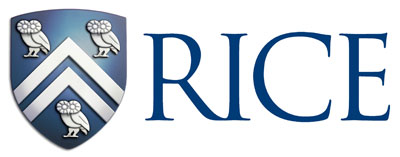
At Rice University, there are a number of MBA programs at the Jesse H. Jones Graduate School of Business for students to select from. Rice’s Full-Time MBA, MBA for Professionals, and MBA for Executives all offer Healthcare as one of their program concentrations.
The PMBA is a two-year, on-campus program with courses in the evenings and weekends for working professionals. The Full-Time MBA is similar but with a traditional on-campus class schedule. Also a two-year program, the EMBA has on-campus classes on Fridays and Saturdays.
For those who need a flexible online option, there is the MBA@Rice online MBA program. This is also a two-year program, and while courses are online, there are some required on-campus residencies – one is MBA@Rice Residential on Rice’s campus, and the other is a Global Field Experience. The MBA@Rice program has seven focus areas, including one in Healthcare.
Stacked Score: 91.35
New York University – New York, New York
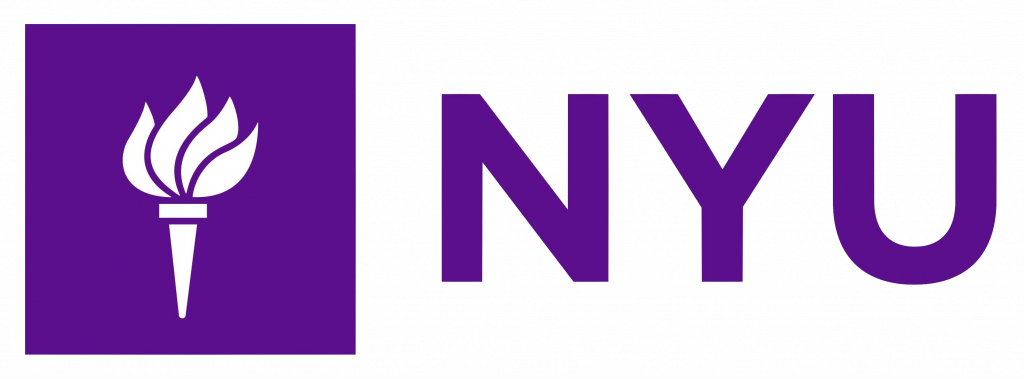
MBA students at New York University’s Leonard N. Stern School of Business have four MBA programs to choose from. NYU’s MBA offerings include a Full-Time MBA, a Part-Time MBA, an Executive MBA, and a Tech MBA, in addition to several dual degree programs and a Fashion & Luxury MBA. But for those students with interest in healthcare, the Full-Time and Part-Time MBA programs are where it’s at.
The Full-Time MBA is a two-year on-campus program, and Healthcare is one of the program’s Areas of Interest. In addition to Healthcare focused coursework, Healthcare MBA students may also participate in a number of NYU-related organizations and events, including Endless Frontier Labs, which is a nine-month program for science and deep technology startups.
Healthcare is also a specialization offered to Part-Time MBA students. This is a two-year to six-year program with both on-campus and online class options and evening and weekend class times for flexibility.
Stacked Score: 91.28
Carnegie Mellon University – Pittsburgh, Pennsylvania

Carnegie Mellon University gives its Tepper School of Business MBA students a variety of programs to choose from. For those who prefer online or hybrid class formats, the 32-month Part-Time Online MBA, the 24-month Part-Time Accelerated MBA, and the 32-month Part-Time Flex MBA are all great options to provide the type of flexibility some students require. For those who would prefer to be on-campus or can do a full-time day class schedule, the Full-Time MBA is a 21-month program at Tepper.
Regardless of which program MBA students are enrolled in, all MBA students need to complete at least one concentration, though many earn three or four. A student earns a concentration by building up their learning stack by completing three or more electives in one subject area, of which Healthcare Analytics is one option. Some courses in this concentration include Care Operations, Health Policy and Management Systems, and Computational Medicine.
Stacked Score: 91.02
Vanderbilt University – Nashville, Tennessee

At the Owen Graduate School of Management, Vanderbilt University MBA students may opt to enroll in either Vanderbilt’s MBA program or their Executive MBA program. Like many other MBA programs, the EMBA is aimed at working professionals with its program format, while the MBA program is an on-campus, full-time program.
While the EMBA does not have a focus on healthcare, the Vanderbilt MBA can be customized with a concentration in healthcare. A concentration is earned with at least 12 credit hours beyond the core coursework. Coursework is a blend of business principles with experiential and integrative learning in the healthcare field. Students in this concentration have the option of participating in the Healthcare Immersion course.
This course includes experiences like watching surgeries being performed and visits to the Mass Spectrometry Research Center and community clinics to gain a holistic view of the U.S. healthcare system through the lens of practicing physicians, nurses, scientists, administrators, and patients.
Students with interest in healthcare may also opt to earn a dual MBA/MD.
Stacked Score: 90.89
Emory University – Atlanta, Georgia

At Emory University, the Goizueta Business School offers on-campus MBA programs in both full- and part-time formats, in addition to their 18-month Executive MBA program. Students enrolled in the Full-Time MBA program can earn a degree in as little as 12 months with the one-year track, but there is also a two-year program for those who would prefer to take a bit more time with the program. But regardless of which duration a student chooses, the Full-Time MBA program offers over 20 concentrations, including Healthcare Consulting.
The Part-Time Evening MBA is focused on working professionals and offers the flexibility for students to complete the program in 24, 28, or 32 months. Like the Full-Time MBA program, the same concentrations are offered, including Healthcare Consulting.
For students enrolled in the EMBA program, there is an opportunity to take electives focused on the healthcare field. Some elective courses include Business of Healthcare, Healthcare Strategy, and Public Policy of Healthcare. These courses are perfect for seasoned professionals already working in the healthcare field, including administrators, consultants, and practitioners. The EMBA can be taken in an on-campus, online, or hybrid format, depending on what works best for the student.
Stacked Score: 90.73
University of North Carolina at Chapel Hill – Chapel Hill, North Carolina

MBA students at the University of North Carolina at Chapel Hill may elect to enroll in a number of MBA programs through the Kenan-Flagler Business School. UNC-Chapel Hill offers a number of MBA options, including the Full-Time MBA and several Executive MBAs, which include Evening, Weekend programs. These are all based on the Charlotte campus but have the option of a hybrid format. Kenan-Flagler also has an Online MBA program. The duration of the MBA programs varies between one and a half years to two years, depending on which program a student is enrolled in.
For students enrolled in the Full-Time MBA, there are a variety of Career Concentrations, including Healthcare. In this concentration, students work with UNC’s schools of medicine and pharmacy. Healthcare concentration students may participate in the Student Teams Achieving Results (STAR) program, where students work with healthcare organizations and companies on real-world business problems.
UNC does not have a healthcare concentration for any other MBA program besides the Full-Time MBA.
Stacked Score: 87.40
Boston University – Boston, Massachusetts

At the Questrom School of Business at Boston University, there are four MBA programs offered. The Full-Time MBA is a two-year program with classes held on the Boston campus. This is a 64-credit program that a student can complete in two years. The Professional Evening MBA is a part-time program aimed at working professionals. There is also an online MBA program and an Executive MBA, but there is no healthcare focus for either of these programs.
Both of these programs offer a Health Sector MBA specialization. The HSMBA provides students with a number of opportunities, from participating in healthcare case competitions to being paired with a mentor to immersions in local healthcare companies. Students in the HSMBA take three required courses and an additional two electives. Required courses include Health Sector Issues and Opportunities; Strategy, Economics, and Policy in the Health Sector; Drugs, Devices, and Diagnostics: New Challenges, Strategies, and Execution; and Health Service Delivery: Strategies, Solutions, and Execution.
Stacked Score: 86.58
University of California, Irvine – Irvine, California
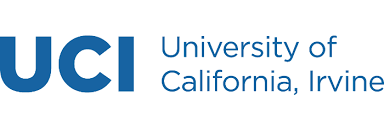
The University of California, Irvine’s Paul Merage School of Business runs a number of MBA programs. The Full-Time MBA is a fully designated STEM program. In this two-year program, students focus on the core curriculum their first year and spend the second building expertise through electives and immersions. All told, this program takes 18 to 21 months to complete. There are four MBA Immersion options for the Full-Time MBA, including Healthcare Management and Policy. Students earn this specialization by completing a number of electives and participating in the Merage School’s Center for Health Care Management and Policy’s annual Health Care Forecast Conference.
Healthcare Management and Policy immersion are also offered for students enrolled in the Fully Employed MBA program. This is a 24- to 33-month program with two three-hour evening classes per week during the core curriculum courses. It also includes three offsite experiential residentials, one of which is international.
UC Irvine also offers an Executive MBA program with a Healthcare Leadership track. The EMBA is a 21-month program that meets every third weekend on campus for classes. In addition to elective courses that make up this track, students also participate in the Federal Policy in Healthcare Residential for five days in Washington, DC.
Stacked Score: 80.45
Case Western Reserve University – Cleveland, Ohio

At the Weatherhead School of Management at Case Western Reserve University, students may opt to enroll in either an on-campus or an online MBA program through a Full-Time MBA program and an Online MBA in Healthcare Management. There is also a part-time MBA for working professionals and an Executive MBA, but there is no healthcare management focus for these programs.
The Full-Time MBA is a 60-credit program that students can complete in two years. In this program, students select one concentration, which is made up of four courses. Among the offered concentrations is Healthcare Management.
The Online MBA in Healthcare Management takes students three years to complete working on a part-time class schedule. Students can expect to attend 60 to 90 minutes of online synchronous classes each week. In this program, students develop business management skills that are specifically relevant to the healthcare industry.
Stacked Score: 79.58
University of Miami – Coral Gables, Florida

In Florida, the University of Miami’s Herbert Business School provides students with a number of MBA programs to choose from. However, only the Executive MBA program offers students the opportunity to build out their healthcare management stack with the Executive MBA for Health Management and Policy.
The EMBA for Health Management and Policy is a one- to a two-year, full-time program that is aimed at those in mid to senior-level positions in the healthcare field. Students come to the University of Miami campus on the first Friday, Saturday, and Sunday of each month for in-person classes. Some required courses in this program include Public Policy and Health, Behavioral and Organizational Systems, Management of Digital Transformation, Financial Reporting and Control in the Healthcare Industry, and Analysis of Health Care Delivery and Policy. All told, this is a 48-credit program.
Stacked Score: 78.05
The George Washington University – Washington, District of Columbia

At the George Washington School of Business, MBA students may enroll in any of the seven MBA program formats. However, among these seven, only the Online Healthcare MBA program offers students the opportunity to focus their education on the healthcare field.
Coursework in the Online Healthcare MBA can be done completely online, although there are in-person global, and experiential opportunities students may choose to participate in. The program is a blend of asynchronous and synchronous learning. Students can expect to attend one hour of live class per week, which is made up of lectures, group activities, and case discussions and is offered during evenings or weekends.
Some of the required courses in this program include Organizations and Human Capital, Accounting for Internal Decision Making, Business Ethics and Public Policy, and Competition in the Global Economy, in addition to 12 credits of electives. For students in this program, at least six of those elective credits must be taken in the School of Medicine and Health Sciences.
Stacked Score: 77.80
Northeastern University – Boston, Massachusetts

Northeastern University’s D’Amore-McKim School of Business offers three MBA programs. Students may choose to enroll in the Full-Time MBA program, which is a two-year program on Northeastern’s Boston campus. The Full-Time MBA also offers students a three-, six-, or 12-month corporate residency, depending on their particular career experience and goals. Northeastern also has a Part-Time MBA, which is typically completed in three years, though students may take anywhere from two to five years to earn their degree. Classes are held on the Boston campus on weeknight evenings. And finally, Northeastern has an Online MBA, which is a two-year program.
Students enrolled in any of the three MBA programs at Northeastern may select Business Management for Healthcare as their chosen concentration. However, in the Full-Time MBA, students must select two concentrations to earn their degree. They can pair Business Management for Healthcare with one of the other options, which include analytics, brand management, corporate finance, international business, corporate innovation, entrepreneurship, investments, marketing, leading people & organizations, marketing analytics, sustainability and business, and operations and supply chain management. Students in the Part-TIme and Online MBA programs have the option of selecting up to two concentrations.
Stacked Score: 77.21
Lehigh University – Bethlehem, Pennsylvania

The College of Business at Lehigh University has a Full-Time MBA program and FLEX MBA program. The Full-Time MBA is a quick, one-year, on-campus program focused on professionals looking to accelerate their business careers. The FLEX MBA is a part-time program for working professionals. The program is offered in a hybrid format in order to provide its students the necessary flexibility to participate in classes while working.
The Full-Time MBA does not have a healthcare-focused concentration. However, the FLEX MBA does. The Public Health concentration is 12 credits and combines business with public health management. It is particularly aimed at those interested in or working in the fields of Biotechnology, Pharmaceutical, Occupational Health, and Health Care. Some example classes in this concentration include Health Data and Computational Science; Data Architecture, Mining, and Linkage; Health Services, Administration, Politics, and Policy; and Cultural Understanding and Health.
Stacked Score: 75.96
Stony Brook University, SUNY – Stony Brook, New York
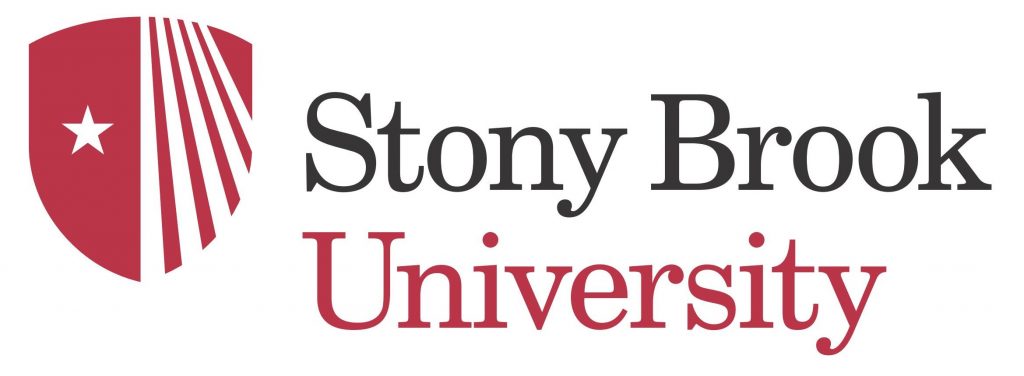
Stony Brook University, SUNY’s College of Business offers an MBA program for which students may opt for either full- or part-time enrollment. Students with an undergraduate degree in business may complete the program in 36 credits, while other students take 48 credits. Most students earn their MBA degree in a speedy 12 to 18 months. Part of the program can be completed online.
Stony Brook offers their MBA program with a Health Care Management focus with courses offered through both the School of Health Professions and the College of Business. In addition to business courses like accounting, finance, and marketing, students also take four classes in the healthcare management area. Some of the required courses in the MBA in Health Care Management include Leadership, Team Effectiveness and Communications; Ethics in Management; Fundamentals of Healthcare Management; and Business Planning and Strategic Management.
Stacked Score: 75.04
Texas A&M University – College Station, Texas
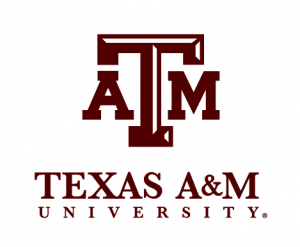
The Mays Business School at Texas A&M University, College Station, has a Full-Time MBA, a Professional MBA, and an Executive MBA program. The Full-Time MBA is an intensive 18-month program with on-campus day classes. The PMBA is a 22-month program with Friday evening and alternating Saturday daytime classes. And the EMBA is all day Fridays and Saturdays on alternating weekends.
Students in the Full-Time MBA designate a track, among which they can choose Healthcare. To complete their track, students must take four courses, which make up 12 credit hours, that include a core course and three electives. Neither the PMBA nor the EMBA has Healthcare tracks for students.
Stacked Score: 73.27
Pennsylvania State University – University Park, Pennsylvania

Students at Pennsylvania State University have the option of enrolling in Smeal College of Business’ Residential MBA or their Online MBA program. The two-year Residential MBA is a traditionally formatted MBA program on Penn State’s campus in State College, PA. Students in this program must select from both concentrations and options. A concentration is a specialized area of business, and an option is a briefer but targeted area of study. At least one concentration is required, though many students pursue two or three options. While there is no healthcare concentration (the choices are STEM, Finance, Management Consulting, Marketing, and Supply Chain Management), Healthcare is one of the choices for available options.
Smeal College’s Online MBA is a 48-credit program, with all classes being asynchronous, although there are synchronous options for those who wish for more engagement with classmates and professors. Of those 48 credits, 39 are from core courses, and nine are electives from concentrations. For the Online MBA, Healthcare Business is one of the concentration options. The nine credits for this concentration come from three courses: Financial Management in Health Institutions, Introduction to Health Economics, and Introduction to Health Services Organizations and Delivery.
Stacked Score: 71.72
Brandeis University – Waltham, Massachusetts

At the Heller School for Social Policy and Management, Brandeis University MBA students may select from programs a Social Impact MBA and an Executive MBA for Physicians. The Social Impact MBA is a 16-month program – this condensed format of four consecutive terms gets students back into the workforce more quickly than in two-year programs. In addition to coursework, students also participate in a four-month Team Consulting Project with mission-driven organizations.
Healthcare Management is one of the concentrations offered with the Social Impact MBA. In addition to the 52 required credits, students take eight credits in Issues in National Health Policy and Management of Healthcare Organizations, along with several healthcare-focused electives and a healthcare-focused Team Consulting Project.
Brandeis also offers an Executive MBA program for Physicians. This is also a 16-month program offered in a hybrid on-campus and online format geared towards practicing MDs, DOs, DMDs, DDSs, and DPMs. Throughout the program, students participate in four 10-day residency sessions in Wellesley, Massachusetts.
Stacked Score: 71.33
University of Pittsburgh – Pittsburgh, Pennsylvania

The University of Pittsburgh’s Joseph M. Katz Graduate School of Business and College of Business Administration offers a Full-Time, Part-Time, and Accelerated MBA program. But those are not what we’ll be focusing on here because none of them offer a healthcare focus. However, the University of Pittsburgh does offer an Executive MBA in Healthcare. This is an accelerated 19-month program. Students take classes in a hybrid format of both on-campus and online learning. In-person classes are held once a month on a Friday and Saturday. Additionally, students also engage in a practicum experience working on real-world healthcare-related issues.
Some of the required courses for this EMBA in Healthcare include Financial Accounting in Healthcare Organizations; Healthcare Economics; Leading People in Healthcare Organizations; and Healthcare Operations and Supply Chain Management. These courses are in addition to the research practicum, which runs throughout the four terms of the program.
Stacked Score: 70.59
University at Buffalo – Buffalo, New York

The University at Buffalo’s School of Management offers MBA students to select from either a Full-Time MBA, a Part-Time MBA, or an Executive MBA program. The Full-Time UB MBA program is a full-time, on-campus program. However, for working professionals who need flexibility, there is also the Part-Time MBA option, which has a hybrid online and face-to-face format. This is a general MBA program, but those who can take courses during the daytime may opt to enroll in healthcare-focused electives.
But the Full-Time MBA does offer a healthcare management concentration. This is a 15-credit concentration with two required courses (Business of Healthcare and Innovators in Health Care) and three electives. Some elective options include Health Care Delivery Models, Health Policy in the U.S., Health Care Economics, and Health Care Strategy and Operations. UB’s EMBA program does not have a healthcare focus.
Stacked Score: 70.29
Healthcare Management MBA Stack
While earning an MBA in Healthcare Management is a great way to build your talent stack in a robust way, there are also many other avenues to work on your career development and expertise. One place to start is with our free Healthcare Management course, where you’ll get a taste of the field as it is, where it’s going, and some areas to focus on to develop your career.
One of the advantages of developing an MBA Stack is that you work on building up your soft skills along with your hard skills. Areas around negotiation, leadership, and communication are incredibly important in the business world, but also the healthcare world, given the heavy people focus of the field. An MBA in Healthcare Management can help you build your stack in these areas in a way that is beneficial to both the business and the healthcare sides of your career. Here’s a blog post from The George Washington University, one of the schools in our ranking, that delves into the importance of those soft skills used in healthcare administration and in a healthcare MBA program.
Healthcare Management Career
An MBA in Healthcare Management program can help open up a variety of career pathways for those already working in the healthcare field. For example, for physicians, there are a variety of reasons why building out your talent stack in this way can be beneficial. For those who want to open or expand their practices, there are a number of business considerations that need to be taken into account alongside the core work of caring for patients.
An MBA in Healthcare Management will give you the business foundations you need to take care of the backend of running your practice and understand how the business side can integrate into the healthcare side in a holistic manner. But running your own practice isn’t the only reason why an MBA in Healthcare Management can be beneficial for physicians. This blog post talks to six doctors about why they decided to pursue their MBA degrees.
Even if you aren’t coming to your MBA program as a healthcare professional, there is value in pursuing an MBA in Healthcare Management or the like. Business professionals who understand the ins, the outs, the nuances, and the pitfalls of the healthcare field are vitally important to providing the best patient care. A well-running practice isn’t just about the medicine but also the behind-the-scenes business, be it a hospital or a clinic, or something in-between. As a healthcare manager, you’ll help craft and shape decisions about your practice’s operations and policies that directly impact people’s lives.
The MBA in Healthcare Management can help you build up the right skill sets in your healthcare setting to make a difference. And lest we put blinders on and focus on physicians and business administrators, an MBA in Healthcare Management can help anyone working in the healthcare field shape policy and practices, including and not forgetting nurses. This article looks at the ways nurses have a unique position to help shape health policies, and it’s a great reason why an MBA in Healthcare Management can be a great way for nurses to build up their talent stacks.
Frequently Asked Questions
How will earning an MBA in Healthcare Management advance my carer?
Earning an MBA in Healthcare Management can provide valuable opportunities for career growth and advancement. An MBA in Healthcare Management equips students with the skills, knowledge, and experience to help them accomplish the increasingly complex tasks necessary for navigating today’s healthcare system. Individuals with an MBA in Healthcare Management can pursue leadership roles in the healthcare sector, such as health systems manager, healthcare consultants, and healthcare information technology professionals, as well as operations manager or CFO.
Additionally, a Healthcare MBA allows students to gain a greater understanding of topics such as quality assurance and risk reduction, financial analysis and planning, data-driven decision-making, strategic management, and ethical healthcare practices. Most importantly, this degree equips individuals with the necessary tools, resources, and skills to better anticipate and address the unique needs of a dynamic and rapidly changing healthcare environment.
What are the differences between an MBA in Healthcare Management and Healthcare Administration?
Healthcare Management:
An MBA in Healthcare Management focuses on how to lead and manage healthcare organizations and systems, as well as how to use business and management principles to improve the quality of healthcare. Students in this program gain a broad understanding of healthcare policies, economics, finance, and operations, as well as a solid business foundation. This program typically focuses on the big picture of healthcare systems and how to use strategic management skills to improve them.
Healthcare Administration:
Healthcare Administration focuses more on the day-to-day operations of healthcare organizations. Students in this program gain an understanding of healthcare systems and how to manage them efficiently. They learn about healthcare regulations and compliance, personnel management, and customer service. This program typically focuses on the micro level of healthcare organizations and how to use administrative and operational skills to manage them.
Is there a demand for Healthcare Management professionals?
Yes, there is a demand for healthcare management professionals. Healthcare management professionals are responsible for managing the complex operational, financial, and legal aspects of healthcare facilities, including hospitals, clinics, and other healthcare organizations. Healthcare management professionals are in high demand due to the growing complexity of the healthcare industry, the need for efficient and cost-effective management, and the increasing demand for healthcare services.
To Wrap Things Up
- We hope this list of 25 MBA programs in Healthcare Management has given you some help in direction when it comes to finding the best MBA program for you and your career goals.
- With an MBA in Healthcare Management degree, you can pursue a career in financial management, strategic management, operations management, healthcare marketing, and much more. The most common position includes healthcare administrator.
Written by: Tammie Cagle
Before you go, see the following:
- The Cheapest Online MBA in Healthcare Management Schools
- Intro to Healthcare Management: Free Online Course
- The Most Lucrative MBA in Healthcare Management Career Paths